UK facing ‘intensifying threat’ from space, says Defence Secretary
Gavin Williamson announces plans to tackle risk of technological assaults from hostile states
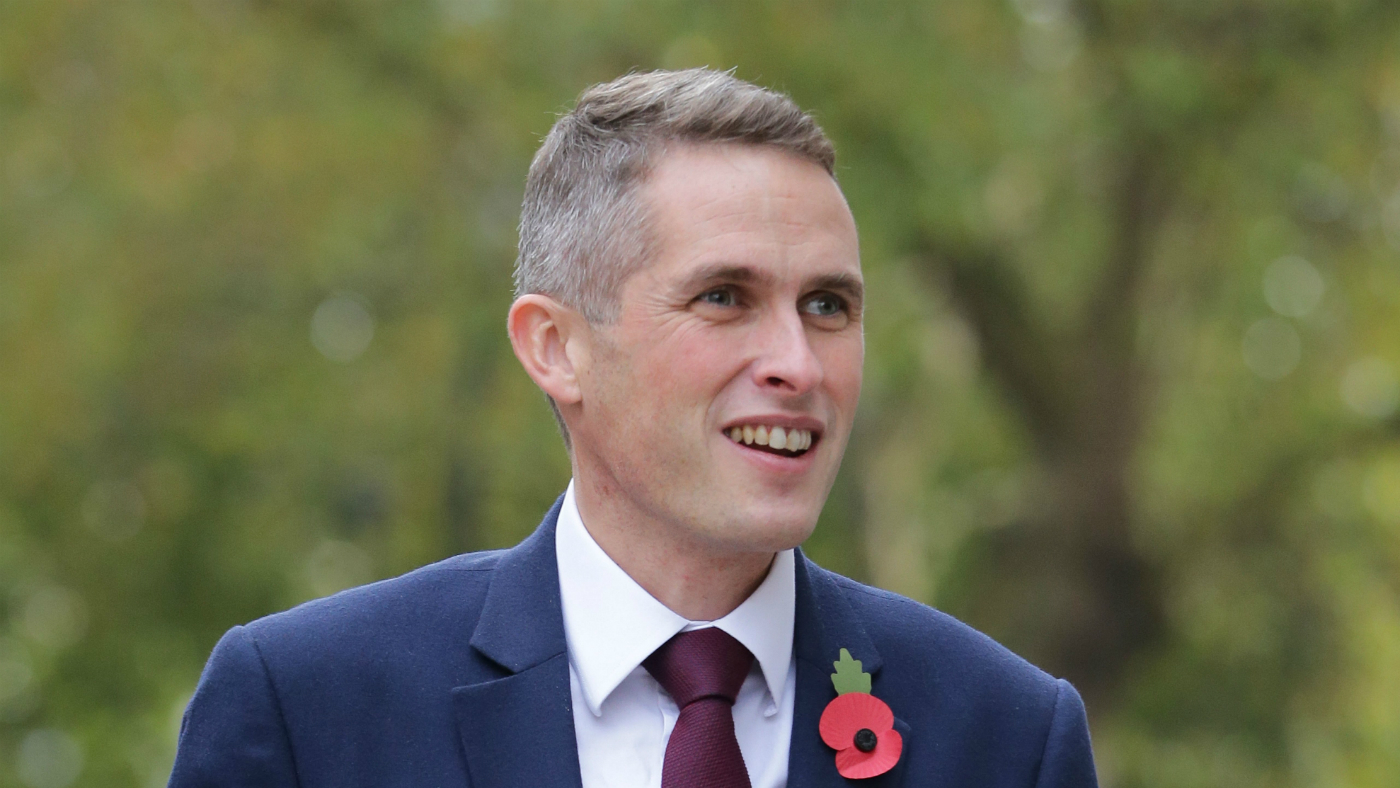
A free daily email with the biggest news stories of the day – and the best features from TheWeek.com
You are now subscribed
Your newsletter sign-up was successful
The UK will boost the number of defence personnel working in the space sector by 20% over five years in order to counter “intensifying threats”, Defence Secretary Gavin Williamson said today.
Announcing the launch of the UK’s first ever defence space strategy, Williamson said Britain must be prepared for technological assaults from adversaries.
“We must make sure we are primed and ready to deter and counter the intensifying threats to our everyday life that are emerging in space,” he said.
The Week
Escape your echo chamber. Get the facts behind the news, plus analysis from multiple perspectives.

Sign up for The Week's Free Newsletters
From our morning news briefing to a weekly Good News Newsletter, get the best of The Week delivered directly to your inbox.
From our morning news briefing to a weekly Good News Newsletter, get the best of The Week delivered directly to your inbox.
“That’s why today I’m announcing the Royal Air Force is taking the lead in this area and why we plan to increase the number of personnel covering space.”
The RAF will be responsible for “command and control” of military space operations.
“The increase in staffing will take the number of people working in the sector to more than 600 by 2023,” reports the London Evening Standard.
Williamson said the new strategy will protect against “emerging space-based threats” such as the “jamming of civilian satellites used for broadcasters and satellite navigation to support military capabilities”.
A free daily email with the biggest news stories of the day – and the best features from TheWeek.com
He added: “Satellite technology is not just a crucial tool for our Armed Forces but vital to our way of life, whether that be access to our mobile phones, the internet or television.
“It is essential we protect our interests and assets from potential adversaries who seek to cause major disruption and do us harm.”
The move “follows an increasingly bitter dispute between Whitehall and Brussels” over “the access the UK, the European Union’s biggest spender on defence, will have to the bloc’s satellite navigation project after it leaves the EU”, The Independent reports.
The EU’s chief Brexit negotiator, Michel Barnier, said last week that British companies could not be directly involved in a new EU satellite navigation system following Brexit, although Britain would have access to its signal.
“It cannot be business as usual,” Barnier said. “Third countries and their companies cannot participate in the development of security-sensitive matters.”
The Financial Times reports that the European Commission has sent a letter to the UK government warning that security elements of the project needed to be protected to avoid them being “irretrievably compromised” by being shared with the UK, which will become a “third party” when it quits the EU.
The announcement that the UK will plan for “alternative systems” in this area “signals that the Government may well be resigned to being excluded from the project”, says The Independent.
-
 Political cartoons for February 16
Political cartoons for February 16Cartoons Monday’s political cartoons include President's Day, a valentine from the Epstein files, and more
-
 Regent Hong Kong: a tranquil haven with a prime waterfront spot
Regent Hong Kong: a tranquil haven with a prime waterfront spotThe Week Recommends The trendy hotel recently underwent an extensive two-year revamp
-
 The problem with diagnosing profound autism
The problem with diagnosing profound autismThe Explainer Experts are reconsidering the idea of autism as a spectrum, which could impact diagnoses and policy making for the condition
-
 Will the UK get involved in the Israel-Iran conflict?
Will the UK get involved in the Israel-Iran conflict?Today's Big Question Keir Starmer is 'walking a tightrope' in helping Israel limit Tehran's nuclear capabilities without being seen to do so
-
 Is UK's new defence plan transformational or too little, too late?
Is UK's new defence plan transformational or too little, too late?Today's Big Question Labour's 10-year strategy 'an exercise in tightly bounded ambition' already 'overshadowed by a row over money'
-
 The state of Britain's Armed Forces
The state of Britain's Armed ForcesThe Explainer Geopolitical unrest and the unreliability of the Trump administration have led to a frantic re-evaluation of the UK's military capabilities
-
 Is Europe's defence too reliant on the US?
Is Europe's defence too reliant on the US?Today's Big Question As the UK and EU plan to 're-arm', how easy will it be to disentangle from US equipment and support?
-
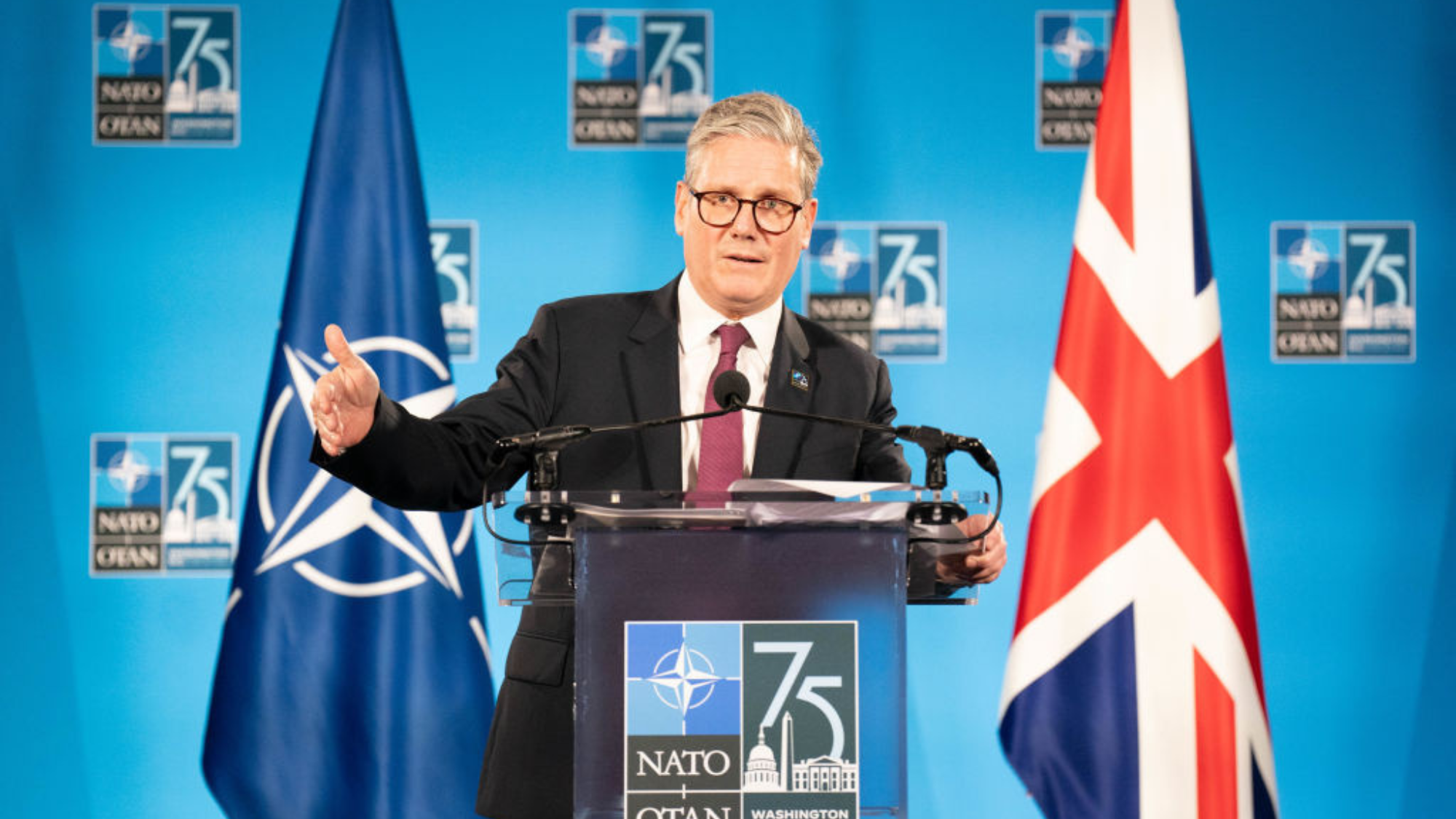 British defence: the crisis in the Armed Forces
British defence: the crisis in the Armed ForcesTalking Point Depleted military power may not be able to meet its own commitment to up defence spending to 2.5%
-
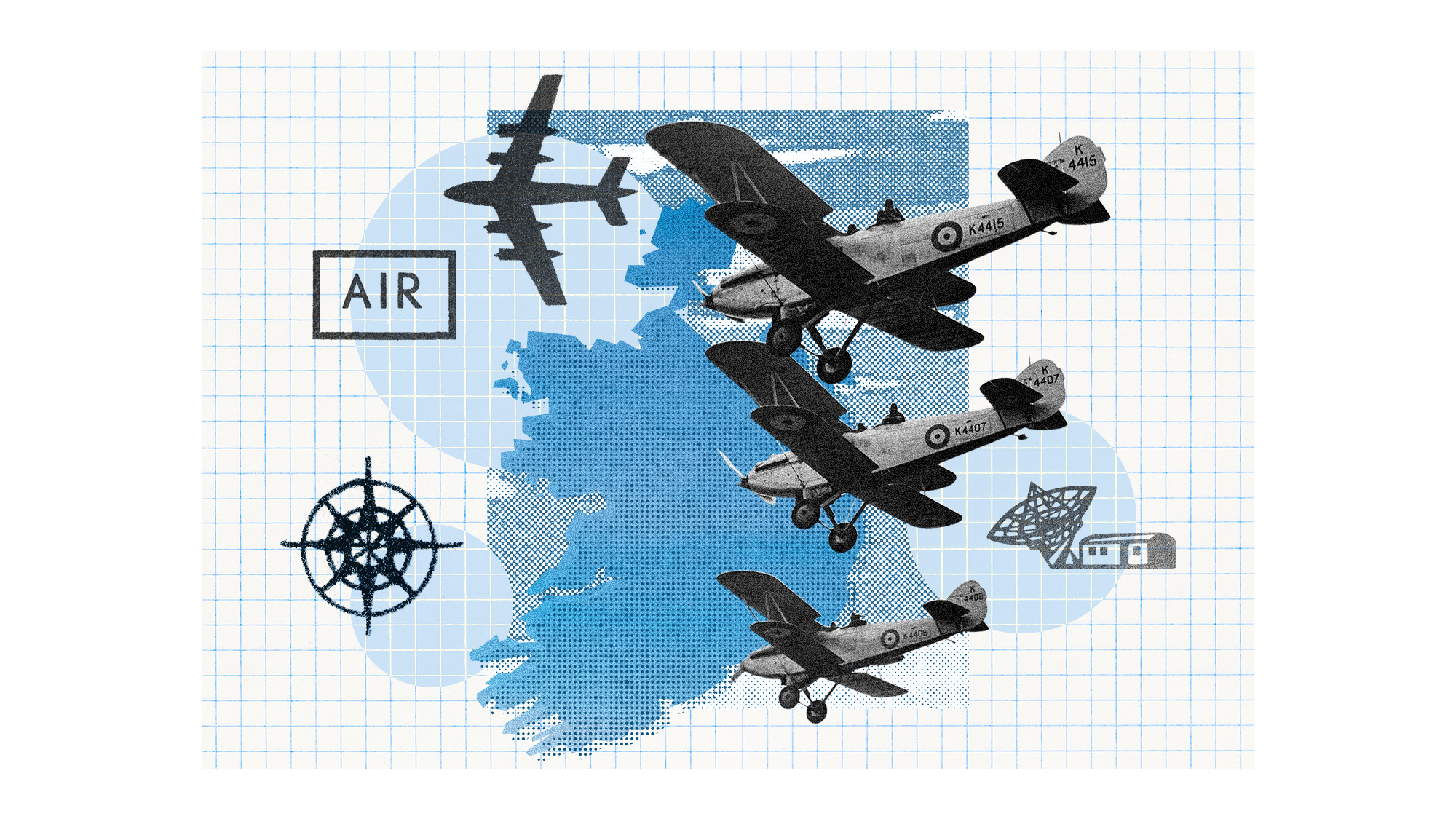 Secret plan for UK to protect Irish skies
Secret plan for UK to protect Irish skiesUnder The Radar Relations between Dublin and London have historically been strained but covert co-operation has endured for decades
-
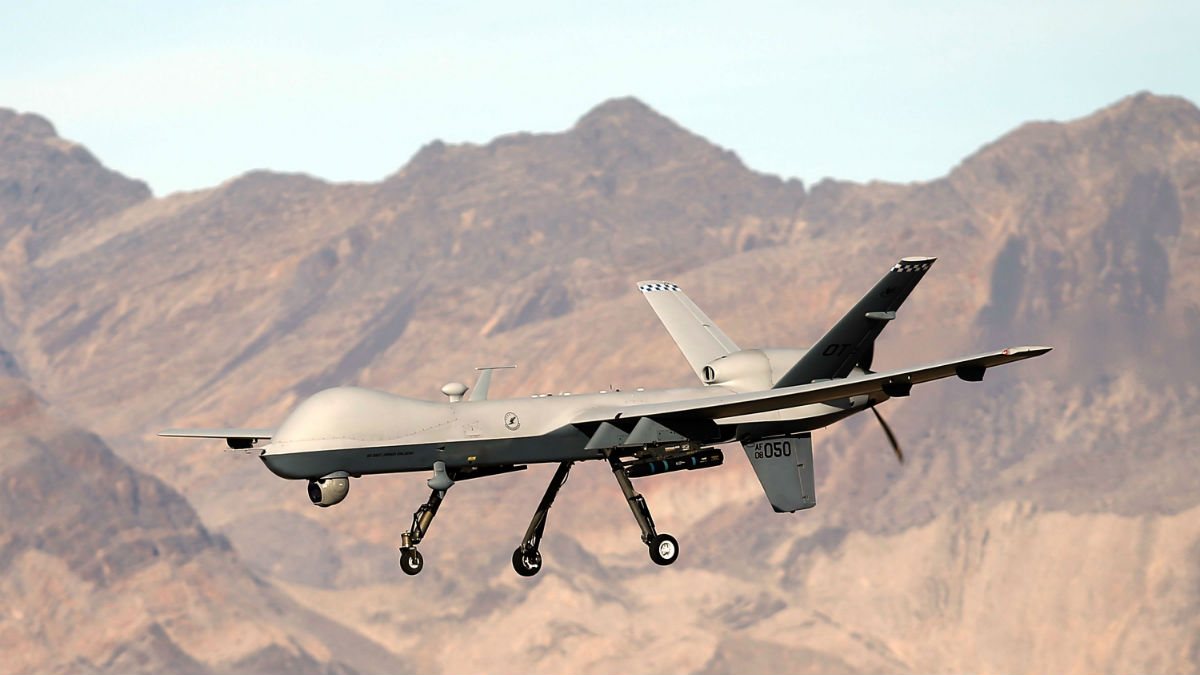 The ethics of military drones
The ethics of military dronesfeature Pilotless bombers play a key role in modern warfare but could AI increase the number of civilian deaths?
-
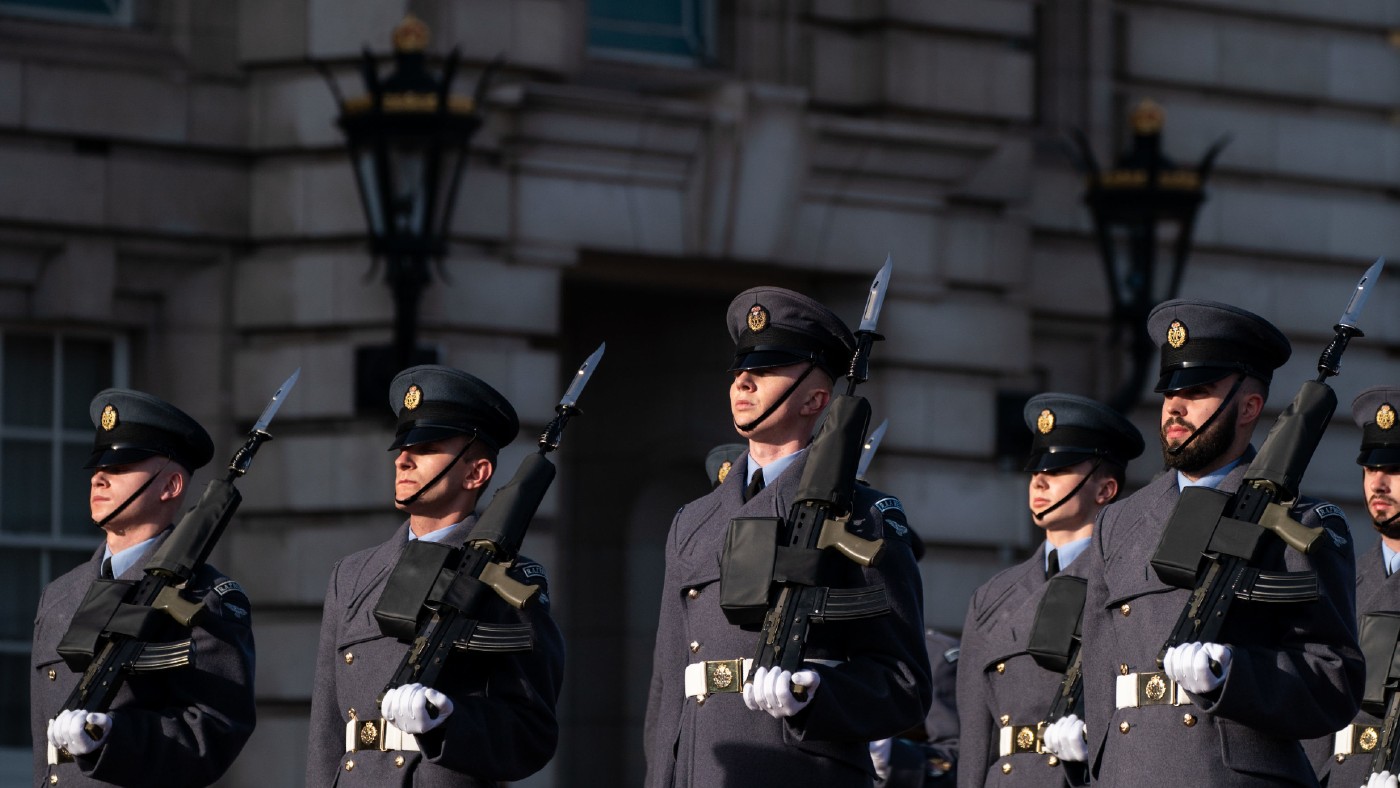 Is the RAF embracing ‘woke ideology’?
Is the RAF embracing ‘woke ideology’?Talking Point Air force under fire after announcing target of 40% of recruits being women by 2030